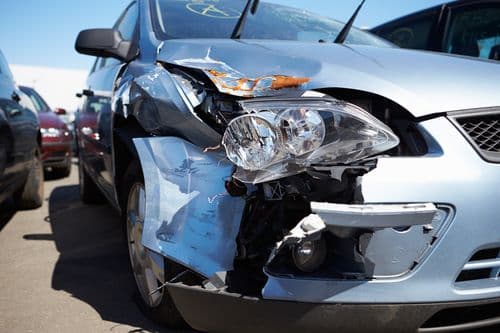¿Qué sucede en un accidente que involucra un coche de empresa? Law
Determining liability can be a challenge in any car accident-related injury claim, especially if the at-fault driver was operating a company car. In most cases, the employer will be liable for the accident—with some exceptions.
The two main ways an employer can be held liable for an auto accident caused by a company driver are employer negligence and vicarious liability.
Employer negligence
Common examples of employer negligence include the negligent hiring or supervision of an employee. If a company hires a person it knows will be driving a vehicle, it is responsible for performing a thorough background check to ensure the employee is a safe driver. This means making sure the employee has a valid commercial driver’s license and does not have a history of suspensions or certain vehicle-related citations. Employers also frequently take precautions such as performing routine drug testing for all company drivers.
Negligent supervision is also a common way to hold an employer liable for a car accident. Employers are expected to have safety policies in place and make sure their drivers comply with them. This means following all logging requirements set by various state and federal laws, and making sure all cargo is properly weighed and loaded before a truck shipment heads out. A failure to ensure employees are exhibiting reasonable standards of care and skill could make that employer liable.
Vicarious liability
The other main means of holding an employer liable for an auto accident is vicarious liability. Under this legal doctrine, the actions of the employee are considered the same in essence of those as the employer. This means that so long as the person behind the wheel was acting in the scope of his or her employment, the employer is liable for his or her actions.
The stipulation about the actions being in the scope of one’s employment is important. If, for example, an employee was using a company vehicle for personal purposes, the employer could not be held liable for the actions. In addition, employers are not liable for any intentional conduct or gross negligence on the part of the driver, such as purposefully running into another person or vehicle or getting behind the wheel while drunk.
Vicarious liability both protects employees while also giving people who have been injured in accidents a better means to recover reasonable amounts of compensation. Companies are far more likely to have the resources available to pay out settlement amounts than individuals would, so it is better for the plaintiff to be able to file the claim against that company rather than the employee.
For further information and guidance on how employers may be held liable for an auto accident, speak with a knowledgeable car accident lawyer Bronx at the Law Office of Evan W. Kohn.
CONTACT INFO
2000 White Plains Rd, Bronx, New York 10462
info@bronxlawfirm.net
24 horas, 7 días a la semana
